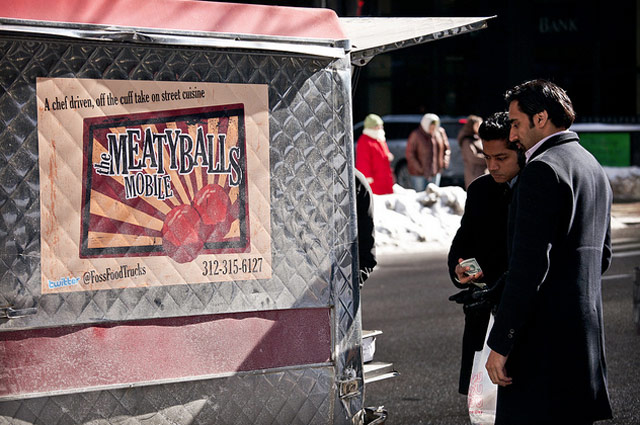Should We Be Concerned About Food Truck Fumes?
By JoshMogerman in Food on Sep 2, 2012 9:00PM
As Chicago’s new love affair with food trucks blooms, we are seeing an issue bubbling up in San Francisco that is worth watching: generators. Actually, exhaust from the generators that power the trucks. We’ve seen comments on the issue and a feature story this week in the San Francisco Bay Guardian highlights concerns about emissions impacts from the Bay Area's fleet of 300 food trucks:
What they lack in horse power, the generators may make up for in sheer multitude… In addition to cumulative impacts, there are also questions about the health impacts on food truck employees.The piece highlights the proximity of less-clean-burning generators to the trucks, noting that “the U.S. Centers for Disease Control and Prevention (CDC) reported that half of non-fatal carbon monoxide poisoning incidents in the 2004 and 2005 hurricane seasons were due to the gas-powered generators used to heat homes, even when placed outside the homes themselves” as reason to be concerned about the fumes.
We reached out to local air quality guru Brian Urbaszewski at the Respiratory Health Association to get his take. While he is far more concerned about what is being spewed from the much bigger backup generators on refrigerated delivery trucks and buildings, as well as the big portable generators for neighborhood music festivals, he thinks the issue might be worth monitoring. His group helped push the City’s anti-idling rules, which eliminate the worst emissions that would have come out of the trucks’ tailpipes, but stresses that newer, cleaner portable generators need to be used to prevent creating pollution hot spots all over town:
“Running generators without the best exhaust pollution control equipment is going to expose people to unnecessarily high levels of air pollution that could affect their health. Since asthma rates are still rising, we should be doing everything we can to reduce the pollution that can make people sick or send them to the hospital. While it's not healthy for the customers, or those living or working nearby, it's even worse for the employees who are the most exposed to pollution all day long.”
We are inclined to agree with some of the Guardian story’s commenters that the issue is minor, but Chicago’s grub wagon pilots should take heed of the debate and do everything they can to avoid this San Francisco speed bump by using the newest and cleanest generators that will keep Chicagoans loving their newly legal food trucks.
